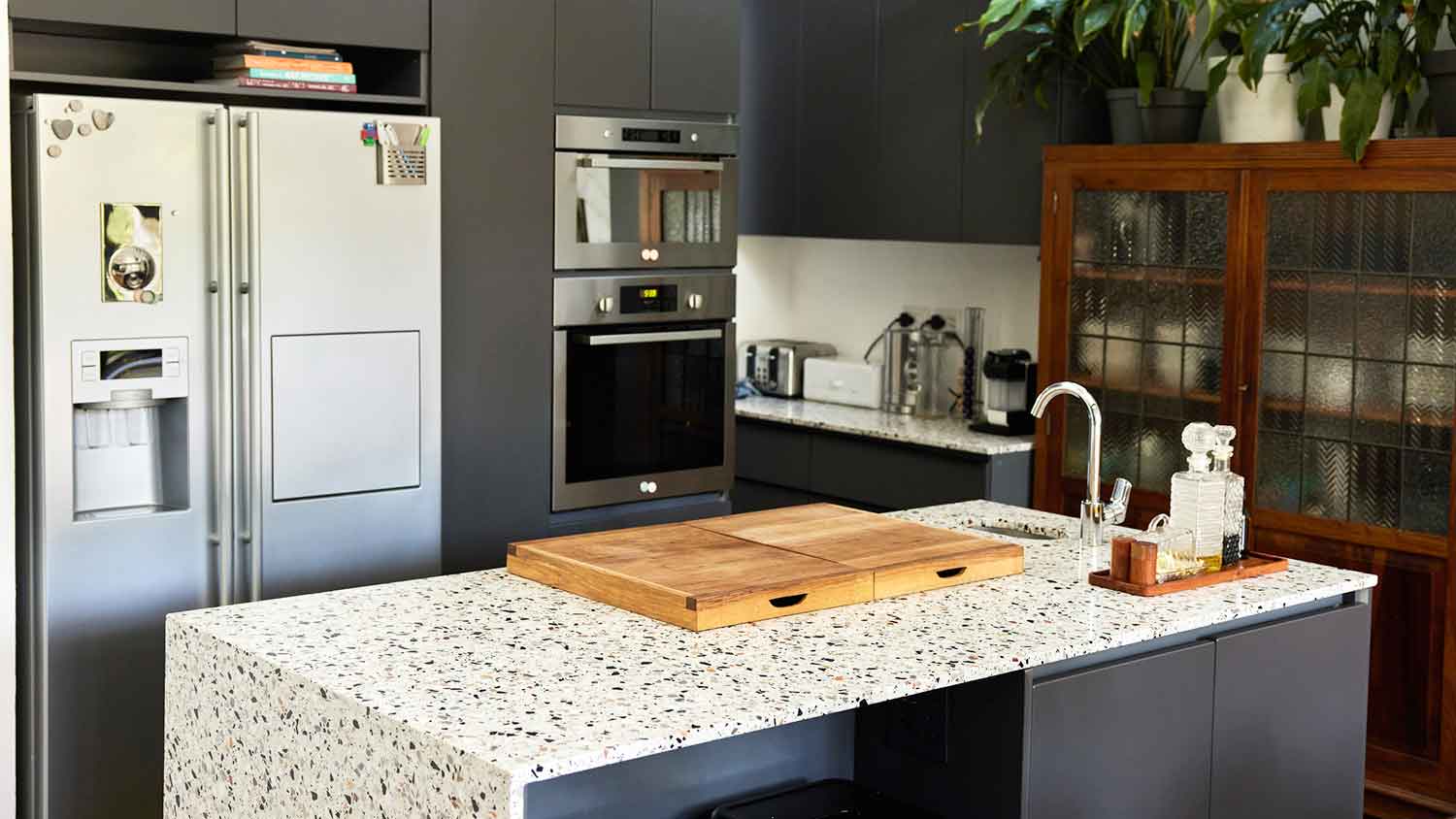
Granite counters are durable and stylish, but if you’re wondering how much granite countertops cost, it’s time to dig into the details.
Seal the deal with your concrete countertops


Concrete countertops have numerous benefits, like durability, longevity, heat resistance, and customizability. However, if left unsealed, they can be prone to staining. Sealing your concrete countertops ensures they can withstand everyday messes in your kitchen without looking worn after a few weeks. This guide explains how to seal concrete countertops properly so you can enjoy your kitchen for years to come.

The first step in sealing concrete countertops is choosing the best sealer. The three main types are acrylic, polyurethane, and epoxy.
Acrylic sealers penetrate the concrete countertops to give them a water-resistant matte finish. This type of sealer is relatively thin and may need to be reapplied every few years for continued effectiveness.
Polyurethane sealers can be water- or solvent-based. They are available in matte or gloss finishes and various shades, so you can stain your countertops at the same time. Reapplication may be needed after five to 10 years.
Epoxy sealers form a film on the concrete countertop and fill any rough areas to give the countertop a uniformly smooth finish. Epoxy should last the life of the concrete and won’t need reapplication like acrylic or polyurethane sealers.
Use a brush or roller to apply your chosen sealer to the concrete countertop. Apply in thin strokes to avoid oversaturating the countertop. Carefully wipe off any excess sealer with a microfiber cloth, then let the countertop dry for 24 hours.
Depending on which type of concrete sealer you choose, you might need to apply a second coat once the first is completely dry. Apply the second coat the same way as the first, using thin, even strokes, wiping up any excess as you go.
If you want, you can apply a final coat of food-safe lacquer to create a shiny, polished look. Apply carefully with a brush and apply a second coat after 24 hours if needed. Let the concrete countertops cure for three days before using them to ensure the lacquer has set properly.
Sealing concrete countertops is essential because it is a porous material. Unsealed concrete countertops will soak up spills, resulting in unsightly stains that are impossible to remove. If you choose concrete as your countertop material, ensure you’ve worked sealing into your schedule and budget.
You may also need to re-seal your concrete countertops after a few years to keep them in good shape—especially if you use an acrylic or polyurethane sealer. Epoxy is longer-lasting and less likely to require reapplication.
Sealing concrete countertops can be a DIY project if you’re comfortable working with stains or sealants (and especially if you installed the concrete countertops yourself). Concrete sealant costs between $0.75 and $2.50 per square foot if you purchase and apply it yourself. Paint brushes cost $5 to $12 each, depending on the type. In all, this is a very affordable project if you opt to do it yourself.
DIY concrete countertop sealing can be time-consuming. If you don’t have the time or know-how to tackle this project, you may prefer to hire a local countertop contractor to seal your countertops. Concrete sealing costs are low whether you DIY or hire a pro. Hiring a pro to seal a 50-square-foot concrete countertop will cost between $65 and $150, including labor.
From average costs to expert advice, get all the answers you need to get your job done.

Granite counters are durable and stylish, but if you’re wondering how much granite countertops cost, it’s time to dig into the details.

Explore how much concrete countertops cost to install based on factors like their size, thickness, location, finish, and labor rates.

The cost of stainless steel countertops may seem shocking compared to laminate, but their durability may be worth it. Here’s how much you can expect to spend.

Recycled glass countertops are made from discarded glass and a durable binding agent. Learn whether recycled glass countertops are the best choice for you.

Sintered stone is a building material typically used for countertops, floors, patios, and walls. Learn more about sintered stone and whether it will work in your home.

Choosing countertops is a big deal, only comparable to choosing your cabinetry. Read this guide if you are waffling between porcelain or quartz countertops.